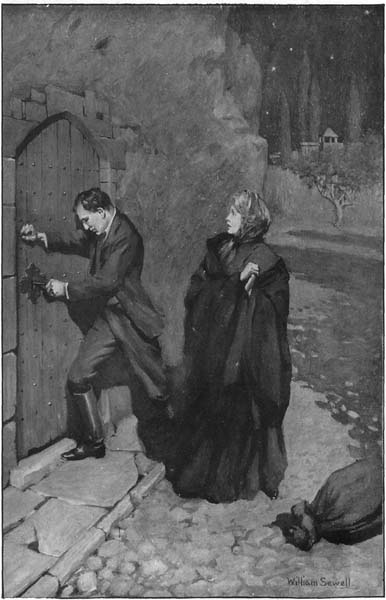A ROMAN SINGER
F. MARION CRAWFORD
1909
CONTENTS
CHAPTER I
CHAPTER II
CHAPTER III
CHAPTER IV
CHAPTER V
CHAPTER VI
CHAPTER VII
CHAPTER VIII
CHAPTER IX
CHAPTER X
CHAPTER XI
CHAPTER XII
CHAPTER XIII
CHAPTER XIV
CHAPTER XV
CHAPTER XVI
CHAPTER XVII
CHAPTER XVIII
CHAPTER XIX
CHAPTER XX
CHAPTER XXI
CHAPTER XXII
CHAPTER XXIII
CHAPTER XXIV
CHAPTER I
I, Cornelio Grandi, who tell you these things, have a story of my own, of which some of you are not ignorant. You know, for one thing, that I was not always poor, nor always a professor of philosophy, nor a scribbler of pedantic articles for a living. Many of you can remember why I was driven to sell my patrimony, the dear castello in the Sabines, with the good corn-land and the vineyards in the valley, and the olives, too. For I am not old yet; at least, Mariuccia is older, as I often tell her. These are queer times. It was not any fault of mine. But now that Nino is growing to be a famous man in the world, and people are saying good things and bad about him, and many say that he did wrong in this matter, I think it best to tell you all the whole truth and what I think of it. For Nino is just like a son to me; I brought him up from a little child, and taught him Latin, and would have made a philosopher of him. What could I do? He had so much voice that he did not know what to do with it.
His mother used to sing. What a piece of a woman she was! She had a voice like a man's, and when De Pretis brought his singers to the festa once upon a time, when I was young, he heard her far down below, as we walked on the terrace of the palazzo, and asked me if I would not let him educate that young tenor. And when I told him it was one of the contadine, the wife of a tenant of mine, he would not believe it. But I never heard her sing after Serafino—that was her husband—was killed at the fair in Genazzano. And one day the fevers took her,
